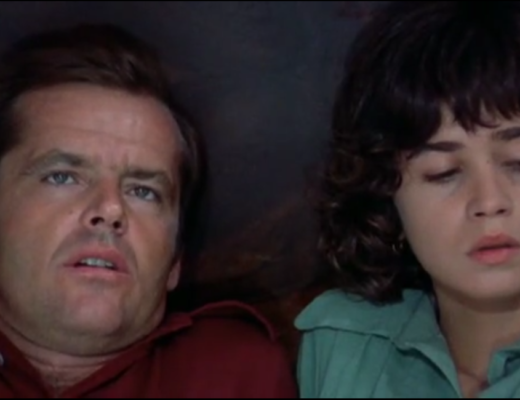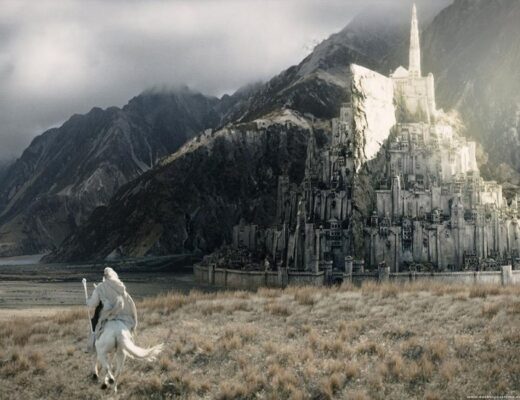Midnights is stuck somewhere between Taylor Swift’s classic pop textures and recent dreamy minimalism, to disappointing ends.
As an unabashedly pop record, Taylor Swift’s new album Midnights invokes the bold aesthetic statements that she sought to make on 1989, Reputation, and Lover. Her most recent original albums before this, Folklore and Evermore, delivered the best work of her career, and she sounded more comfortable than ever as both a writer and celebrity amidst their drastic shifts in sound. The start of her Taylor’s Version re-recordings, begun in 2021, has also proved to be hugely successful at revisiting the merits of her past work with the added graciousness of time. In short, Midnights arrives at a moment of career peak for Swift — creatively, commercially, probably even personally. When taking all that context into account, perhaps it’s no wonder that the album lands as an underwhelming affair.
Almost the entirety of Midnights is produced by the ubiquitous Jack Antonoff, who has worked on a multitude of Swift tracks dating back to 2014. His contributions to her discography range from the tense, crackling “Out of the Woods” to the acoustic and gauzy “Illicit Affairs” to however the hell you would describe “Look What You Made Me Do” to the dreamlike and dissolving “The Archer.” You would hardly know any of the former by listening to Midnights alone, though, as the vast majority of the album finds Swift green-lighting Antonoff as he goes on woozy synthpop autopilot. The two have previously created some amazing tracks together that embrace slow, pulsing synths, delicate vocals, thumping drums, and heavy reverb (“Cornelia Street” alone justifies the entirety of Lover), but Midnights is practically drowning in these hallmarks of his style, and by now we’ve heard it so many times — across a multitude of pop artist acts, too — that it can’t help but sound played out. Some of the songs are so rote that they come off as self-parody — “Maroon” is AI-generated Antonoff and probably the most forgettable song Swift has put out in five years — and some have no personality to their production at all (“You’re On Your Own, Kid,” “Question?”). Most of the upbeat tracks, though they’re welcome as a sign of life, sound like the sparkly Swift-Antonoff style that stopped evolving years ago.
But the biggest problem is that Midnights is stuffed full of slow, minimalist tracks that aspire to dreaminess but forget to produce anything sonically interesting. There are some successes: “Sweet Nothing” is an intimate, moving breath of fresh air, and “Labyrinth” gets points for fully detaching from the earth as it balances on the precipice of falling in love. Songs like these would shine in the right context… but Midnights’ tracklist is not that context. For every “Sweet Nothing,” there’s a “Vigilante Shit,” which also attempts sparse production but only ends up at pale Billie Eilish imitation: the latter’s songs work largely because they are produced with knife-sharp precision; Antonoff produces either big or raw, and is just objectively not the person you should call for that kind of thing. And for every “Labyrinth,” there’s a “Mastermind,” its murky production doing nothing to sharpen Taylor’s confessions of planning her way to romance or softening the winking twist in the final chorus. The result of all this imbalance is that many of the album’s slow cuts bleed into each other to the point where the highlights start looking less impressive by proximity.
It’s clear that with with this latest album Swift is aiming for the subtle, emotional reflection of Folklore and Evermore refracted through the sounds of a classic Swift pop record, but Midnights doesn’t succeed in having it both ways. Her 2020 work was so incredible because the music — mostly courtesy of Aaron Dessner, but with a few Antonoff credits, too — aimed for precision and space, and then got out of Swift’s way so that she could write her ass off. Her level-up into more emotionally, imagistically, and syllabically complex songwriting needed a supportive instrumental base so that listeners could take pleasure in the details. But on Midnights, a lot of her lyrical work falls flat due to a mix of technical processing (the reverb and compression!) and misaligned genre expectations. She’s still writing in a Folklore mode (“Familiarity breeds contempt / don’t put me in the basement / when I want the penthouse of your heart” is an actual chorus centerpiece in “Bejeweled”), but the songs are arranged to reward listening for simpler hooks, more instant gratification, and less challenging pop structures and narratives, and a lot of what she delivers here simply slips through the cracks to be forgotten. That isn’t to say these two styles couldn’t work together to create something interesting, but it would require more recognition, intention, and evolution from Swift and her production choices than this album displays.
Elsewhere, the 3am bonus tracks tacked on to the end of the album are admittedly too stylistically scattershot to mesh well with the rest of Midnights, but the willingness to change things up instead of getting stuck in a tasteful synthpop rut is what makes these songs the most interesting part of the record. “Bigger Than the Whole Sky” is another melancholy ballad, but it stands out as a gripping battle with grief thanks to stellar writing from Swift. “High Infidelity” is one of three Dessner productions, and although it sounds as if plucked straight from Evermore, the narrative stakes cut through cleanly and leave a lasting impression. “Would’ve, Could’ve, Should’ve” (also Dessner) is so good that it’s borderline infuriating it was relegated to “bonus track” status — furious and haunting and new, it’s one of the only album cuts with any sense of urgency, and sounds like a dispatch from a parallel universe where we got an entirely different version of this album.
For all that, Midnights isn’t a bad record. But for a project themed around sleepless nights, times when we can fall into love or despair or loneliness or discovery in a way that feels at once more surreal and more revelatory than anything in the daylight, there’s a strange lack of intensity to its sonic and lyrical textures. So many of the tracks coast along in Swift’s comfort zone, delivering only things we’ve heard from her before, and much of the emotional potential of her writing gets lost amid the focus on hashtag-vibes. Coming off Folklore and Evermore, where Swift, who is nothing if not a remarkably gifted storyteller, delivered character work that led to moving and imaginative lyricism, too many of those stories on Midnights feel like rough sketches that lack any staying power. The 3am tracks only underscore the standard edition’s lack of variety — compare it to her last outright pop project, Lover, which was a bit of a mess but wore its beating heart on its sleeve with such personality that the excellent highs mostly covered for the misses. There is sadly far less of that personality or ambition to the chilled mid-tempo pop of Midnights. Swift’s greatest strength as a pop star has always been her narrative voice, but what this album has to say feels like the afterthoughts of better ideas, and that’s what marks its careful competence as so very disappointing.







